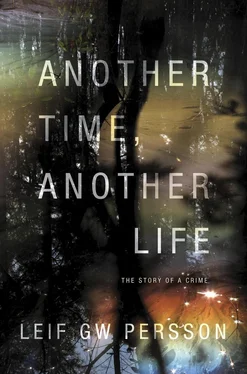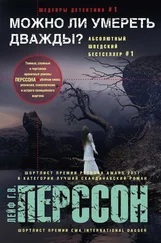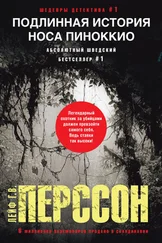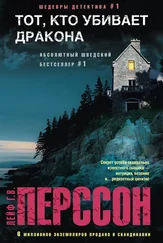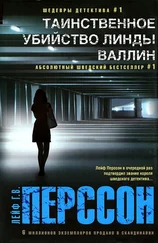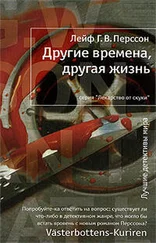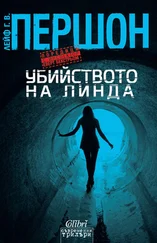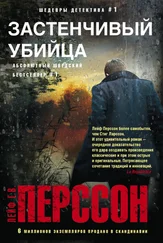So instead he tried a different route. Who had reinstated the information about Eriksson and Welander in the file on the embassy drama, despite the manifest lack of interest in the case itself and the fact that both Eriksson and Welander were long dead?
Not Persson, because he’d already retired. Not Berg either, thought Wiklander, though without really knowing why. It doesn’t seem like Berg, taking them out and then putting two back in.
Could it have been someone else in the building? After getting the necessary permissions from Johansson he had simply gone around and asked.
Behind the third door he knocked on was a chief inspector with the terrorist squad, who happened to be sitting on the answer.
“It was me,” he said, nodding happily at Wiklander. “I was the one who put them in the file.”
“May I sit down?” Wiklander asked, looking inquisitively at the vacant chair in front of the desk.
“Of course,” said his colleague with the terrorist squad cordially. “Would you like some coffee?”
Half an hour later Wiklander had consumed two cups. In addition he now knew how the names of two corpses had been reinstated in the as yet inconclusive investigation of one of the most serious crimes in Swedish history. On the other hand, he had not become any wiser. Definitely not wiser, thought Wiklander.
Analysts at the military intelligence service had sent in the tip. The chief inspector with the terrorist squad who received it had obviously noticed that the two individuals in question had been dead for some time, but because his informant had also said that there would probably be more tips concerning the same matter, involving individuals who were both alive and not at all uninteresting to SePo, the guy from the terrorist squad had chosen to put them back in.
“You know how finicky our analysts can be,” he added by way of explanation.
Was there anyone else, Berg, for example, who had reacted against this measure? Wiklander asked. No one, his colleague summarized, and obviously not Berg, since considering the order of command in their mutual workplace the information wouldn’t have been filed over his objections.
“Berg must have approved it,” said the chief inspector with the terrorist squad. “A mere chief inspector like myself...”
“Yes,” said Wiklander. Berg must have approved it, he thought.
“From the fact that you’re here I’m guessing that our friends up in the gray building have gotten in touch again, so this doesn’t seem to have been completely wrong,” said Wiklander’s host, winking slyly.
Wiklander nodded in such a way that a sympathetic observer might perhaps have understood as agreement. What rock did they dig you out from under? he thought.
“I have a slight difficulty right now... as you’ll surely appreciate,” said Wiklander evasively. “What we’re trying to do is to assess our previous information... in light of the new material we’ve come up with, if you know what I mean.”
“I understand perfectly,” said the colleague with a smile of mutual understanding, in spite of the fact that he hadn’t understood a thing.
“It’s true I haven’t been here very long,” said Wiklander, “but it seems like it’s pretty unusual for us to get any tips from those quarters. From the military, I mean.”
“Tell me about it. What do you think I was thinking?” The colleague at the terrorist squad nodded with emphasis. “So I asked them straight out where they’d gotten it from — the information they were submitting, that is.”
“And?” Wiklander tried to appear eager and appropriately curious.
“They said they got it from the Germans,” the chief inspector said, leaning forward and lowering his voice. “From the lads at the BND. And because it wasn’t any of their business, they handed it off to me... well, to us that is.”
“The BND,” said Wiklander, who was new to secret ops and had not yet gone through any courses.
“Bundesnachrichtendienst,” answered the chief inspector. “Which as you surely know is the Germans’ counterpart to the CIA.”
“You don’t say,” said Wiklander, making an effort to appear at least somewhat shrewd. “Any idea how they got hold of it? The BND, that is,” he clarified.
The chief inspector wiggled his right palm.
“Nobody’s talking about it, as you can appreciate. But some things you figure out for yourself and some things don’t need to be said. That part was more implicit,” Wiklander’s host replied.
“Wait a second,” said Wiklander. “Did anyone say... or did anyone not say — that they got the information from the BND?”
“That’s not the kind of thing you say,” said the chief inspector deprecatingly. “It would be a real dereliction of duty if you said that sort of thing.”
“You figured it out anyway?” asked Wiklander.
“Of course I did,” said the chief inspector contentedly. “I don’t know if you know, but around that time the Germans found some previously unknown material in the old Stasi archives. It was the so-called SIRA archive, which, among other things, contained a lot of names of their old spies and political sympathizers abroad. There was also quite a lot of information from the seventies and eighties, so that even a child could figure out what had happened — when the Germans found out about it, I mean. Well, and then we got it. Of course it was here in Stockholm that the shit hit the fan. And I can’t rule out that this was just their way of tweaking our noses. Even if it’ll soon be twenty-five years since those leftist maniacs blew up the West German embassy.”
“You’ll have to excuse me,” said Wiklander, “but why in the name of God didn’t Stasi get rid of the papers in that SIRA archive?”
“The official explanation is that they didn’t have time. They had a shortage of shredders,” the terrorist chief inspector said comfortably. “Fate bestows her favors unevenly. They should have called me. They could have borrowed as many as they wanted.”
This is getting stranger and stranger, thought Wiklander as he returned to his office. High time to talk with the boss.
Johansson immediately made room in his schedule, and a few hours later Wiklander reported his findings.
“This is getting stranger and stranger,” said Johansson. “Here’s what we’ll do,” he continued, nodding encouragingly at Wiklander.
“I’m listening,” said Wiklander.
“I think you’re completely right about Eriksson, Welander, and Tischler,” said Johansson. “Try to find out who the fourth one is, and then I’ll see if Berg has any ideas. At least he’ll be able to tell me why he removed them from the file two years ago.”
“If you’re going to talk with him anyway you might as well ask him how common it was back in his day for us to get help from the military,” Wiklander suggested.
“Well, I know what it’s like these days,” said Johansson with a wide grin. “They seem to finally understand that these are new times. Nowadays we’re greeted with standing ovations. I had dinner with the supreme commander last week.”
“And it was nice,” said Wiklander neutrally. Whatever that has to do with anything, he thought.
“Yeah,” said Johansson. “I got the impression that attitudes have changed somewhat.” Although the food was only so-so, he thought.
“Let’s hope so,” said Wiklander. “We still owe our salaries to the same taxpayers.” Although they seem to have considerably better per diems than we do, he thought. At least that’s what he’d heard at one of the courses he’d taken since getting his new job.
“Joking aside,” said Johansson, suddenly looking serious. “If they’re just fucking with us, they won’t get away with it. I didn’t have that good a time. Find the fourth man for us, and I’ll take care of the foreign policy. And see if Jarnebring has any ideas. I just remembered he was involved in the investigation of Eriksson’s murder,” said Johansson, who had finally put the pieces together after Wiklander had recounted the case from 1989.
Читать дальше
